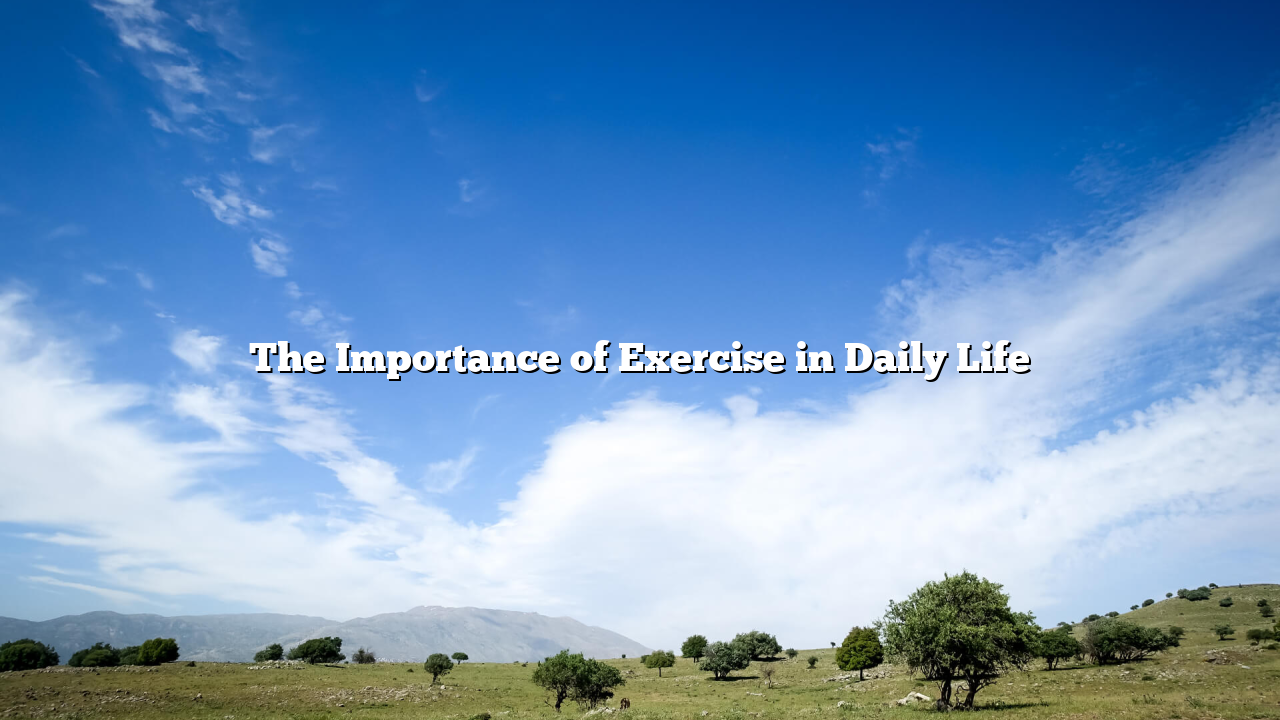In today’s fast-paced world, many people find themselves overwhelmed with work, studies, or personal responsibilities, often neglecting their health in the process. One of the most effective ways to maintain a healthy lifestyle is through regular exercise. Exercise not only improves diponegoro4d physical fitness but also contributes significantly to mental well-being, social interaction, and overall quality of life.
First and foremost, exercise is essential for physical health. Engaging in physical activities such as jogging, swimming, or even brisk walking helps strengthen the heart, lungs, and muscles. Regular movement improves blood circulation, reduces the risk of cardiovascular diseases, and boosts immunity. In addition, exercise aids in weight management by burning calories and improving metabolism. This is especially crucial in today’s era, where obesity and lifestyle-related illnesses such as diabetes and hypertension are becoming increasingly common.
Beyond physical health, exercise plays a vital role in mental well-being. Scientific research has shown that physical activity stimulates the release of endorphins, commonly referred to as “happy hormones.” These chemicals help reduce stress, anxiety, and depression while promoting feelings of happiness and relaxation. Many people find that even a short workout session can improve their mood and increase their focus throughout the day. Exercise also enhances sleep quality, allowing individuals to rest better and wake up feeling refreshed.
Another important aspect of exercise is its impact on discipline and self-motivation. Committing to a regular workout routine requires consistency, dedication, and time management. Over time, these habits extend beyond fitness and positively affect other areas of life, such as academic performance, career growth, and personal development. Exercise teaches people the value of setting goals, overcoming challenges, and pushing beyond comfort zones.
Furthermore, physical activity provides opportunities for social interaction. Team sports, group workouts, or fitness classes allow individuals to connect with others, build friendships, and develop a sense of community. For many, exercising with friends or teammates makes the process more enjoyable and provides encouragement to stay consistent. Social connections built through physical activity can also lead to better emotional support and improved overall happiness.
It is important to note that exercise does not always have to involve intense gym workouts or professional sports. Simple activities like cycling to work, taking the stairs instead of the elevator, or practicing yoga at home can make a significant difference. The key is consistency and finding an activity that is both enjoyable and sustainable. By incorporating exercise into daily routines, individuals can maintain long-term health without feeling overwhelmed.
Lastly, exercise helps slow down the effects of aging. As people grow older, muscle strength, flexibility, and bone density naturally decline. However, regular physical activity can help maintain mobility, reduce the risk of osteoporosis, and keep the body strong and active well into old age. In this sense, exercise becomes an investment in the future, ensuring a healthier and more independent life.
In conclusion, exercise is not just an option but a necessity for a balanced and fulfilling lifestyle. It strengthens the body, sharpens the mind, builds discipline, and fosters social connections. Whether through sports, gym sessions, or simple daily movements, incorporating exercise into everyday life can bring countless long-term benefits. Ultimately, making time for exercise is one of the best decisions an individual can make for their health and happiness.
